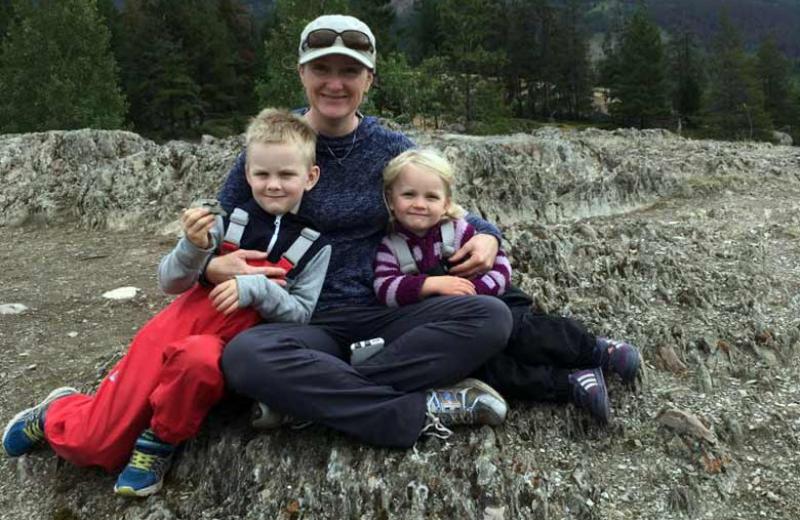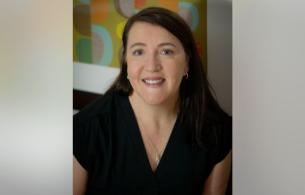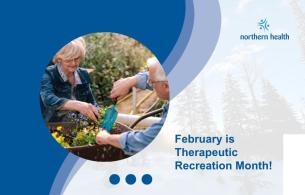Adverse Childhood Experiences (ACEs) and lifelong health
You never know how you’ll come across your next great idea. It could be something seen in passing, an article, or words exchanged between friends. In Dr. Christine Brenckmann’s case, the idea to use the Adverse Childhood Experience (ACEs) questionnaire in her own practice came in the form of a social media post by someone attending the ACEs summit in Vancouver last November.
I had the pleasure of sitting down and chatting with Dr. Brenckmann in her office to discuss ACEs and her work as a physician.
What made you first interested in family medicine?
My career actually started in public health; I was keen to look at the broader social determinants of health. During my work in the field, I often found myself wondering where I could make a difference the most. That’s how I became interested in family medicine and eventually decided to pursue it. I think of health as a bank account. You have no choice where, or into what circumstances you are born. Some people are born with more in their bank account than others and I think the health care system can help to even out those bank accounts.
What are Adverse Childhood Experiences (ACEs) and why do they matter?
ACEs is a term given to describe all types of abuse, neglect, and other traumatic experiences that occur to individuals under the age of 18. A study was conducted that showed the number of ACEs suffered by a person in childhood and teen years is powerfully correlated with negative lifelong health outcomes. It’s also highly correlated with social, educational, and employment outcomes.
So how does the ACEs questionnaire work?
It’s a simple questionnaire consisting of 10 questions. Patients tell their doctor their score and it is recorded similarly to measurements like blood pressure.
Is conducting an ACEs questionnaire helpful?
At first I was skeptical of using the ACEs questionnaire in clinical practice. I was worried that we would re-traumatize patients and not have much to offer them. Fortunately, the opposite has been true. Patients appreciate me asking, as it helps me to understand them better. Sometimes when people talk about their ACEs, they often say, “It’s in the past and doesn’t affect me anymore,” or, “I can’t believe this is still affecting me today.” People sometimes aren’t aware that their early experiences have had such a profound and lasting impact on their lives. Some people are not aware that what happened to them was wrong, undeserved, or not “the norm.” Having a questionnaire also helps patients share information about their past without having to talk about it. Trauma-informed care shifts the thinking from “what’s the matter with you?” to “what happened to you?”
There are now more and more tools being developed to help people with a history of trauma, or who have experienced adverse events in their childhood. In short, the questionnaire is a simple way to gather information about the root causes of a problem. (Note: Dr. Brenckmann pointed out that the ACEs questionnaire is not comprehensive as it does not address war, residential school, or refugees.)
Does a history of adversity impact one’s health?
A traumatic past affects how our brain and body develop. It also affects the habits that we develop and how we cope with stresses in our lives. Studies show that as the ACEs score increases, so does the risk for negative health outcomes. A person with more than seven ACEs is likely to die twenty years earlier than a person with no ACEs, which is quite shocking. Fortunately, with support, there are things we can do to change these habits and change our future.
What can be done for those who have experienced ACEs?
People need to know that the things that happened to them are not their fault. We need to be compassionate rather than judgmental, understanding the “why” rather than just the “what.” We discuss what the person’s goals are moving forward and what support they would like from us or from other community resources.
ACEs are often caused by unhealthy relationships. What does a healthy relationship mean to you?
To me, a healthy relationship means three things: mutual respect, compassion, and safety. If you have these things, the rest will follow. Healthy relationships help protect ACEs from happening, and can help us heal from past traumas.
What’s one message you’d like to share with Healthier You readers?
I’d like to share a saying from one of my community health professors, Dr. Don Langille, which has stuck with me. He once said that it all boils down to how we treat each other. Not a single thing is unaffected by relationships. How do we treat those who are alone and traumatized, or who have experienced unhealthy relationships, or ACEs? It all goes back to respect, compassion, and safety.














Comments